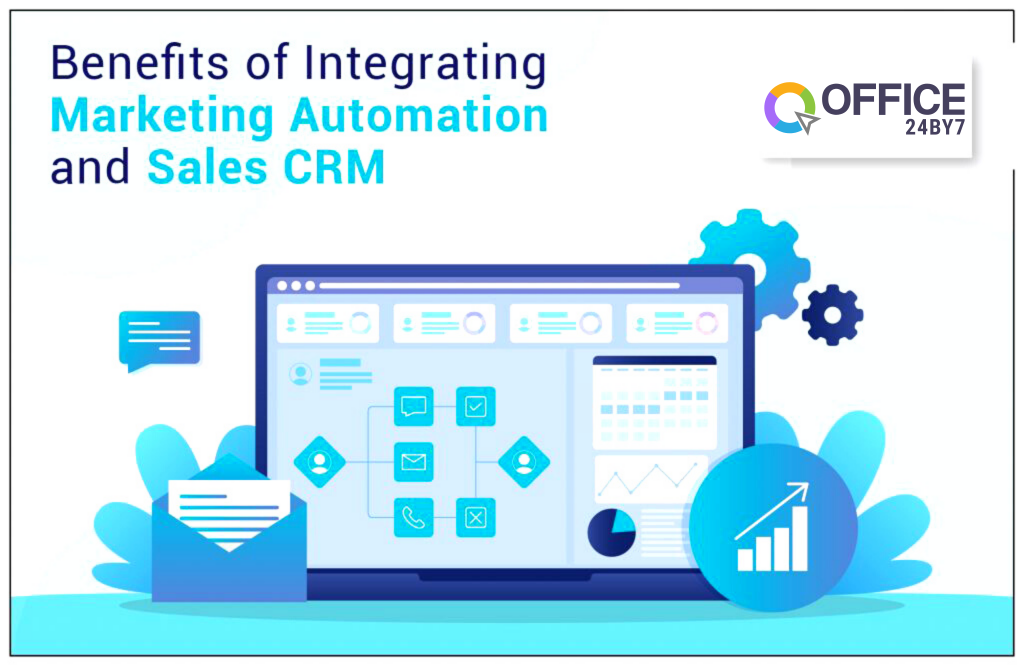Marketing automation and Sales CRM are the two most powerful tools in any organization’s arsenal to spurt the growth. Businesses and organizations are using the tools but separately. Fear of data loss, disturbances in user interfaces are holding back the integration of the two. Of course, the integration cost also a reason. But, when marketing automation and sales CRM automation are integrated, it becomes even more powerful tool to organize entire marketing and sales operations to drive sales growth to unprecedented new levels.
The advantages of integrating marketing automation and sales CRM are many.
1. Better customer relations and easy nurturing
A CRM provides for better relations with the customers. Likewise, marketing automation provides for automation of lead generation and nurturing. If both are not integrated, using two sets of data in marketing automation and sales CRM leads to misleading and duplicity, often unnecessarily draining the resources and time.
With the integration of the two, a unified data of all the customers can be created, so that the data will consistent across the system making it easy to organize, track and run focused campaigns.
Instead of feeding the individual lead data into the CRM, if the marketing automation is integrated with CRM, all the leads captured automatically synced to the CRM making it easy to nurture the leads.
Automated campaign flow based on user response takes the lead nurturing to the next level where every lead can be converted into a sale.
2. Prioritize the leads on the basis of score
As the lead moves down the sales funnel, it needs to be lead through the right way by effective nurturing to complete the sale. Also, not all the leads are ready for conversion. Here where the lead score comes to the rescue to prioritize the lead to be taken for immediate nurturing, up-selling and cross-selling.
Based on the lead behavior, activity, interaction, and response get lead scores auto-generated. Lead scores help to organize and prioritize the leads to target better.
The lead source can also be included in the scores so as to assign to the right team to ensure guaranteed conversion.
3. Sales time is reduced significantly
When the sales cycle spreads over months, leads lose the interest or take products or services elsewhere. Integration of sales and marketing CRM streamlines the campaign flow and help nurture the leads in a focused manner, leading to a reduction in the sales cycle.
For businesses, time is most precious. Nurturing a lead over a long period of time cost resources. Automation makes it easy to send the most relevant content at the right time to close the deal.
While attending multiple leads, there is also a chance of communication gaps. Automation minimizes all these gaps.
4. Makes it easy to turn cold leads into warm leads
Each lead is a prospect for sure, if not now sometime in the future. So inactive leads need to be engaged periodically to see the sales readiness.
Periodical emails to cold lead with a drip flow based on the lead response help to convert the leads automatically without any trouble. Also, the renewed activity of the lead can be tracked and send to the sales team for appropriate action.
Personalized emails sent to the inactive leads by the automation proved to be more responsive.
5. You will gain more insights into your company’s performance
A sales CRM can measure the performance of sales, but not the impact of the various marketing activity on sales. Likewise, marketing automation can’t measure sales performance.
Combining the two helps to measure the performance of both the fields comprehensively. Detailed analyzation of the two gives better insights into the processes and make it vivid which one doing good and which needs the improvements.
It also makes it smooth to draw the lines between marketing and sales to prepare the targets and plans to achieve the goals.
6. Marketing team passes qualified lead to sales
All the leads are not sales-ready. Even all the sales-ready leads can’t be converted too.
The common and recurring problem between the marketing and sales team is premature sales lead’s transferring. Such passing of leads to the sales team not only wastes the team time but also causes to wait and loss of other potential leads at the same time.
Sales team only closes the deals, whereas the marketing teams have to do most of the talking, and drive the leads through to make the decision to do the purchase. Marketing automation does this best by delivering the right content at the right time. Hence the necessity of integration of sales marketing automation and sales CRM.



